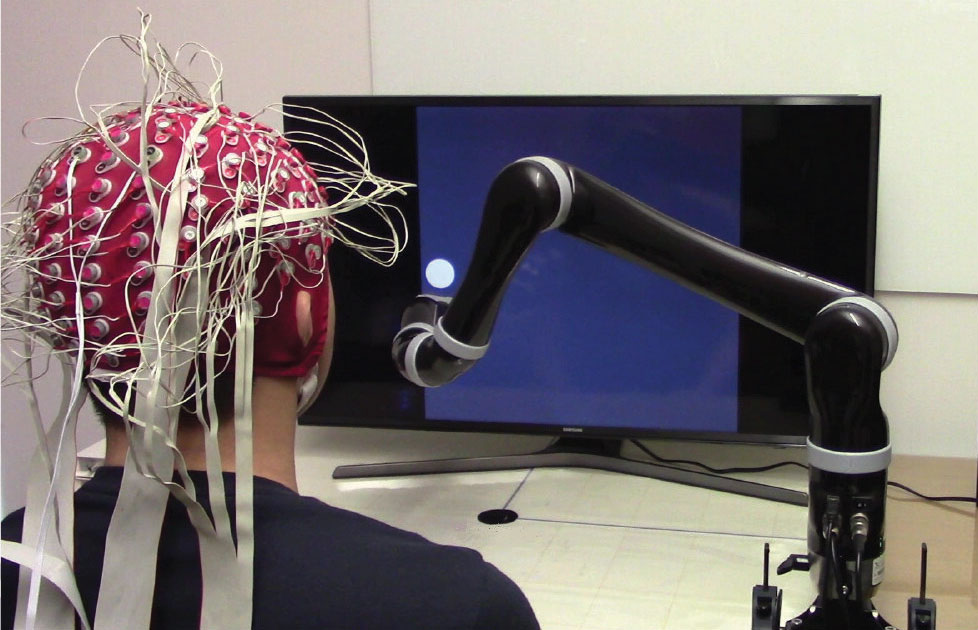Researchers from Carnegie Mellon University and the University of Minnesota have made a breakthrough in brain-computer interface (BCI) and robotic technology. Their innovative work could see revolutionary applications for people suffering from neurological diseases and paralysis.
Basically, their research will allow individuals to control a robot arm with their minds, without use of any surgery or invasive procedures.
How they made it possible
Researchers made use of a blend of sensing and machine learning techniques for creating a brain-computer interface (BCI) that could reach signals deep within the brains of participants wearing EEG headcaps.
While checking the system, participants were asked to direct a robotic arm to point at a cursor as it moved around a computer screen. The mind-controlled robotic arm showed a high degree of motor control, as it moved around a computer screen.
Researchers foresee that in future this research will allow us to control the tech around us through our mind, and it will not only help the people with movement disorders or paralysis, but will benefit the population as a whole.
CMU researcher, Bin said, “Despite technical challenges using noninvasive signals, we are fully committed to bringing this safe and economic technology to people who can benefit from it,” “This work represents an important step in noninvasive brain-computer interfaces, a technology which someday may become a pervasive assistive technology aiding everyone, like smartphones.”







